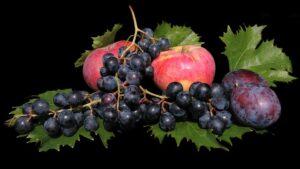Blue planet: With soil renewal farming, the consumer can get healthier food
Soil renewal agriculture, the use of no-till technology, not only reduces soil erosion and improves the soil’s ability to retain water, but also allows consumers to access healthier food – said János Áder, former head of state, chairman of the board of trustees of the Kék Bolygó Climate Protection Foundation, on his Blue Planet podcast on Monday published in his latest broadcast, which is also available on the most popular video sharing portal.
 The guest of the podcast, agricultural engineer Berend Ferenc, owner of the Somogyi Kószáló Farm, who has been using the technology for more than ten years, said that no-till farming means direct sowing, i.e. only a maximum of ten percent of the soil is “disturbed”. Only seeders are used, no soil work is done, the mulch is left on the surface, which helps the development of living microorganisms.
The guest of the podcast, agricultural engineer Berend Ferenc, owner of the Somogyi Kószáló Farm, who has been using the technology for more than ten years, said that no-till farming means direct sowing, i.e. only a maximum of ten percent of the soil is “disturbed”. Only seeders are used, no soil work is done, the mulch is left on the surface, which helps the development of living microorganisms.
He recalled that in the drought years of the 2000s, his father bought tillage tools without rotation in preparation for farming without plowing. The transition to no-till technology was an economic decision, and from 2011 no plowing was done on the entire crop area.
The main aspect of the change was soil erosion, which has since stopped spectacularly. The bottom of the plow, the concrete-hard layer 5-10 centimeters deep in the soil cultivated with deep plowing 30-40 years ago, which is very difficult to break through, has disappeared from the farmland. In the area cultivated on the family farm, it is possible to penetrate to a depth of 80-90 centimeters with a stick, he noted.
He talked about the fact that the no-rotation technology leads to slower development of the plants, since the soil is denser, contains much more moisture and is cooler. When it was rainy, they were able to produce twice the average yield: the average yield per hectare was 3.5 tons on the plowed fields, and 7 tons for the Berend Ferencs.
He explained: they often sow grain after the harvest, which is widely considered unprofessional. “We don’t do anything after harvest, a no-till planter clears a two-and-a-half-centimeter strip and places the seed two to three centimeters deep.”
Related news
Blue Planet – Ancient grains have more favorable physiological and environmental effects than industrially grown wheat
🎧 Hallgasd a cikket: Lejátszás Szünet Folytatás Leállítás Nyelv: Auto…
Read more >Blue Planet – Botanical gardens are becoming more valuable in urban environments due to climate change
🎧 Hallgasd a cikket: Lejátszás Szünet Folytatás Leállítás Nyelv: Auto…
Read more >Related news
(HU) Átadták a SIRHA Budapest 2026 Innovációs Termékverseny díjait
🎧 Hallgasd a cikket: Lejátszás Szünet Folytatás Leállítás Nyelv: Auto…
Read more >How does the forint exchange rate affect consumer prices?
🎧 Hallgasd a cikket: Lejátszás Szünet Folytatás Leállítás Nyelv: Auto…
Read more >HELL CITY has arrived, led by Michele Morrone
🎧 Hallgasd a cikket: Lejátszás Szünet Folytatás Leállítás Nyelv: Auto…
Read more >







